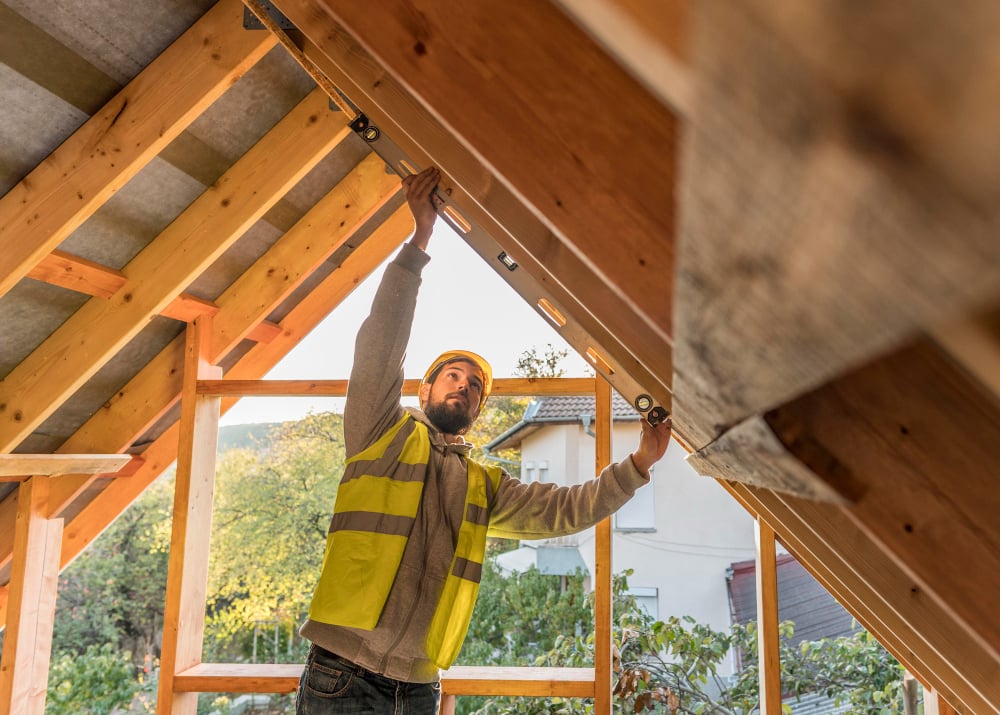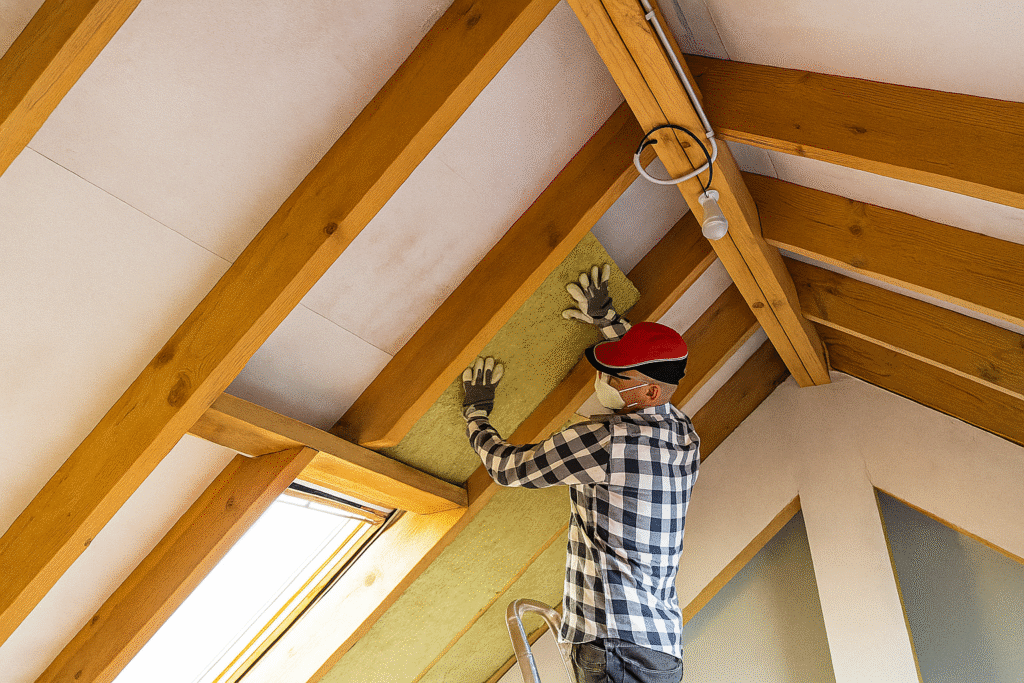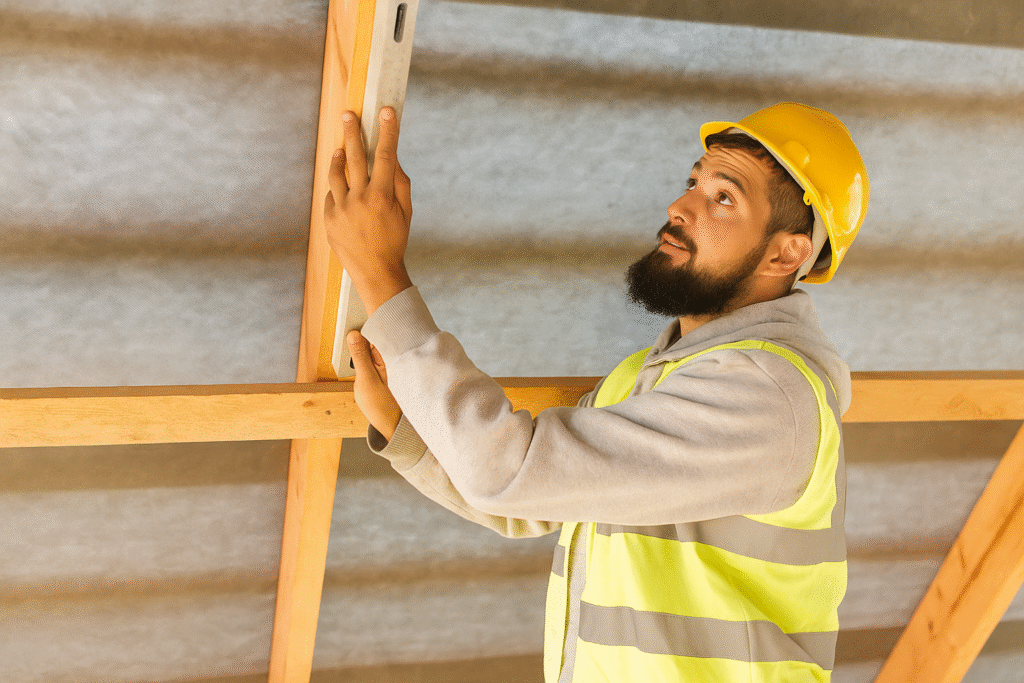
What’s the Best Roof Insulation for a Florida Home?
Roofing
October 9,2025

Have you noticed your energy bills climbing, even though your AC is set to the same temperature? Or maybe some rooms in your home feel uncomfortably warm, no matter what you do? The answer might be in your attic. Your roof insulation plays a major role in keeping your Florida home comfortable and your cooling costs under control.
At FoxHaven Roofing, we help South Florida homeowners understand how the right insulation can make a real difference—especially in our unique climate.
Why Does Roof Insulation Matter in Florida?
Florida’s climate presents challenges you won’t find in most other states. Your roof absorbs intense sun and heat nearly year-round, and during summer, attic temperatures can soar to 150°F or higher. Without proper insulation, that heat transfers directly into your living space. Your air conditioner is then forced to run longer and work harder, driving up your electric bill.
Did You Know? On a hot summer day, your Florida attic can reach temperatures of 150°F or more. Proper insulation is your home’s first line of defense against that intense heat.
Quality roof insulation creates a thermal barrier. It keeps the intense summer heat out of your home and helps maintain a stable, comfortable temperature inside. This means your AC works more efficiently, you spend less on cooling, and your entire home feels more pleasant.
What Insulation Types Work Best in Florida?
Several insulation types are available, but not all are suited for Florida’s high heat and humidity. Here are the most common options and how they perform in our climate:
- Spray Foam Insulation: A top performer for energy efficiency, spray foam expands to fill every gap and crevice, creating an airtight seal. This prevents air leaks, provides the highest R-value (heat resistance) per inch, and resists moisture exceptionally well. It also bonds to your roof deck, adding structural strength that is helpful during hurricane season. While its upfront cost is higher, its superior performance makes it a valuable long-term investment.
- Rigid Foam Boards: This is another excellent choice, particularly for the flat or low-slope roofs common in South Florida. These boards are highly resistant to moisture and deliver consistent thermal performance. When installed correctly, they create a continuous layer of insulation with very few gaps, making them ideal for both residential and commercial buildings.
- Fiberglass Batts: An affordable and widely available option, fiberglass batts are relatively easy to install between roof joists. However, they can absorb moisture in humid conditions if not paired with a proper vapor barrier, which can reduce their effectiveness over time.
- Blown-In Cellulose: Made from recycled materials, blown-in insulation is effective at filling irregular attic spaces with many obstacles. Its main drawback is that it can settle and compact over time, which may require “topping off” to maintain its original R-value.
For Florida homes, we typically find that spray foam or rigid foam boards provide the most reliable, long-term protection against our demanding climate.
Does Adding More Insulation Really Make a Difference?
Yes, and you will likely notice the difference on your very first energy bill. Upgrading to the proper amount of insulation can reduce your cooling costs by 15-20% or more.
The benefits also extend to the health of your roof. Adequate insulation reduces the extreme temperature swings in your attic, which helps protect your roofing materials from premature aging. It also helps prevent the moisture buildup that can lead to mold—a common and serious concern in Florida’s humid climate.
How Much Insulation Does My Florida Roof Need?

Florida building codes recommend an R-value between R-30 and R-38 for most attics. The R-value measures how well an insulation material resists heat flow. Think of it as the insulation’s effectiveness rating—a higher number means better protection against heat transfer.
Homeowner Tip: If your home was built before 2000 and you’ve never upgraded your insulation, it likely falls short of today’s standards. An assessment can tell you if an upgrade would lower your energy bills.
The right amount for your home depends on your roof type, the age of your home, and the condition of any existing insulation. We generally recommend R-30 as a minimum for South Florida homes. During a roof inspection, we can measure your current insulation and help you determine if you need more.
How Do I Choose the Right Insulation?
Choosing insulation for a Florida home requires thinking beyond the initial price tag. In our hot, humid environment, moisture resistance is just as critical as heat resistance. Look for materials designed for subtropical climates that meet or exceed the recommended R-30 R-value.
It’s also important to weigh long-term value against the upfront cost. Spray foam costs more initially but often delivers greater energy savings over its lifetime. Fiberglass is less expensive but may not perform as well in humid conditions. Always factor in professional installation, as the quality of the installation directly impacts the insulation’s performance and longevity.
How Do I Know If My Insulation Needs Replacing?
Look for clear warning signs that your insulation may be failing. Are your energy bills rising without explanation? Does your AC run constantly while some rooms never feel cool? You might also notice uneven temperatures between floors, water stains on your ceiling, or a musty odor in your attic. If you can see your insulation, check for visible damage like compressed, wet, or discolored spots. These signs often point to insufficient or damaged insulation that needs attention.
Can I Install Roof Insulation Myself?
While some homeowners with construction experience can install fiberglass batts or blown-in insulation, we advise caution. Working in a Florida attic can be hazardous due to extreme heat, and improper installation—like compressing the material or leaving gaps—can significantly reduce its effectiveness.
A Note on Safety: Due to extreme heat, working in a Florida attic can be hazardous. Professional installation not only ensures correct performance and compliance with building codes but also protects you from potential health risks.
Spray foam insulation always requires professional equipment and expertise to ensure a proper application. Professional installation guarantees correct coverage, compliance with building codes, and your safety. These details are what ensure your insulation performs as it should for years to come.
Make the Right Choice for Your Florida Home

In Florida, roof insulation isn’t just a feature—it’s a crucial part of protecting your home and managing your energy costs. While the best option depends on your home and budget, most South Florida homeowners see excellent results with spray foam or rigid foam insulation, as they handle our heat and humidity most effectively.
At FoxHaven Roofing, we help homeowners navigate these decisions with clear, honest guidance. We can inspect your attic, measure your current R-value, and recommend the solution that makes the most sense for your home.
Ready to lower your energy bills and improve your home’s comfort? Contact FoxHaven Roofing today for a free insulation assessment. We’ll help you make the right choice for your home.

